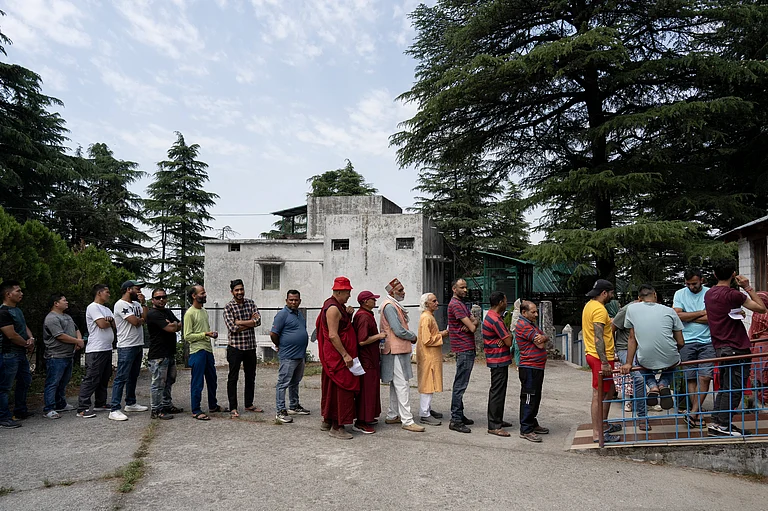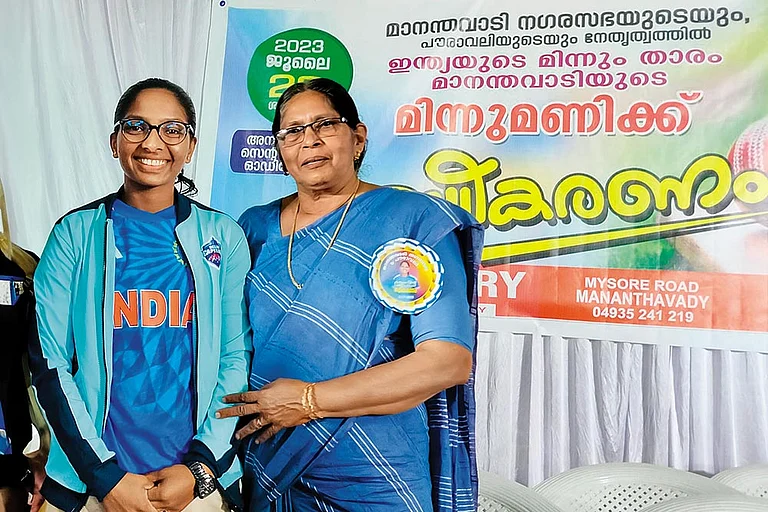In the freezing temperatures of snow-laden mountain valleys in Himachal Pradesh, an indigenous tribal woman walks miles, up and down, on rocky paths to make fellow women folks aware of their rights of inheritance, which is denied by the law and customs. She has been engaged in a relentless struggle for more than 50 years, in a bid to seek changes in the law to give unmarried daughters and married women, equal right-hold in their ancestor's property.
Meet Rattan Manjary Negi, 70, who is the hope of hundreds of women in the area of Kinnaur in the state of Himachal Pradesh. As per ‘Wajib-ul-Arz’ –also called ‘Rivaaj-e-Aam’, a patriarchal law, women have no right to inherit and the entire property goes to male members—the brothers in the family. This customary law has been prevalent since 1926, both in the districts of Kinnaur and Lahaul, Spiti.
Negi, daughter of Col. P.N. Negi, who was also commissioned within the British Indian Army, is known for her long battle to get rid of this archaic custom.
“The law deprives wife and daughters to have any share in the ancestral property of their husband and father respectively,” she says, though admits that her campaign has finally started showing some results and brothers in many families have voluntarily started giving a share of the property to sisters.
When she was 22 years old, she became the head of the village (village Pradhan). Several women approached her with their problems of being deprived of property rights.
The question that arose in her mind was that while men and women are born out of the same womb, why does society discriminate against women? Her thought paved the way to form an NGO named, ‘Mahila Kalyan Parishad’ that works for women’s property rights.
In 2015, the Himachal Pradesh High Court gave its verdict in favour of the tribal women, ruling that they cannot be denied inheritance rights. The court was of strong view that the Hindu Succession Act, which grants equal inheritance rights, should take precedence over customary law.
The order was challenged in the Supreme Court on the grounds that the move would result in fragmentation of the land holdings into small patches. It will also result in litigations and the women, who will get married to non-tribals or someone out of the community, will 'create rivalries'. The order was stayed and Manjari challenged it. The case is pending in the top court.
Born in 1952, Manjari attributes her strength for continuing this fight to her mother. “My mother inspired me and encouraged me to get education and thereafter do social work. I developed an interest in social work during early childhood,” she says.
While she heads the women rights' group and had remained a sarpanch and zila parishad member for several years, her dream to be a woman lawmaker - an MLA, however, remains unfulfilled.
She has written a letter to Prime Minister Modi expressing her willingness to meet him and discuss the property issue of tribal women in her area. In an interview with Times Of India, she said, "If the Centre can abolish Triple Talaq, why can’t this custom that is making women’s condition like hell be abolished?”
It is not only in Himachal Pradesh but many women across the world are denied their share of land due to such archaic laws. #StandForHerLand is a campaign for implementing women’s land rights and to reduce the disparity between women and men. This campaign aims to bridge the gap between law and practice so that women can realise their equal rights to land.


























